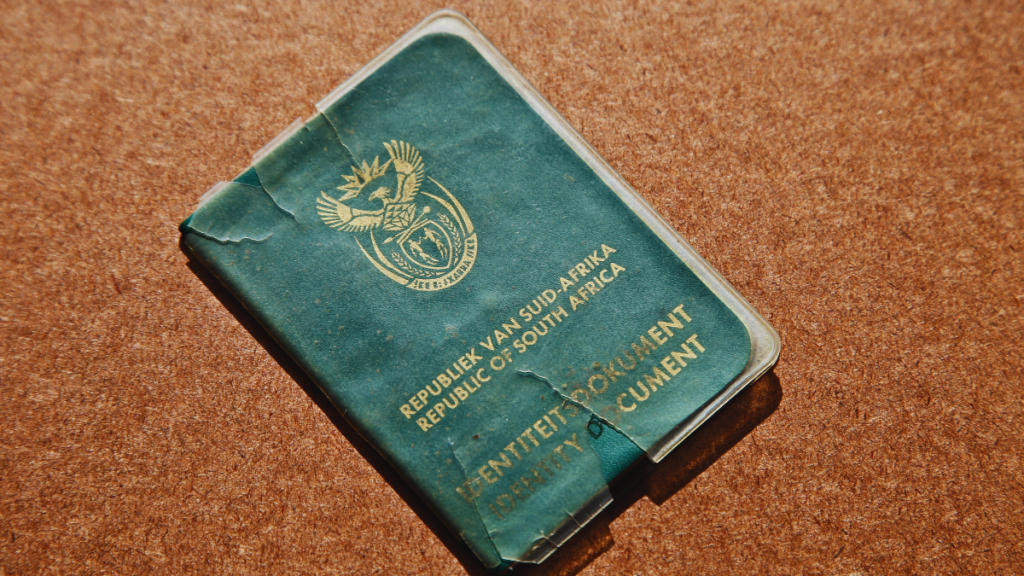Thulani Mavuso, Deputy Director General of South Africa’s Department of Home Affairs, anticipates phasing out the country’s green ID books within the next two years. Despite issuing nearly 26 million smart ID cards, the department aims for 38 million before discontinuing the green ID. Mavuso highlighted concerns about the green ID’s vulnerability to fraud, urging citizens to opt for the more secure smart ID card as part of a national upgrade initiative.
Sign up for your early morning brew of the BizNews Insider to keep you up to speed with the content that matters. The newsletter will land in your inbox at 5:30am weekdays. Register here.
Join us for BizNews’ first investment-focused conference on Thursday, 12 September, in Hermanus, featuring top experts like Frans Cronje, Piet Viljoen, and more. Get insights on electricity and exploiting SA’s gas bounty from new and familiar faces. Register here.
By Myles Illidge
Department of Home Affairs (DHA) deputy director general Thulani Mavuso says it expects to phase out South Africa’s green ID books in the next two years.
Speaking to 702, Mavuso noted that the department doesn’t have a set timeline but is targeting 38 million smart IDs before discontinuing the green ID book.
“The green ID books remain valid and continue to be legal documents,” he said.
“Our expectation is that in the next two or so years, we should have actually just done away with it, but we have not set the timelines.”
Mavuso explained that when the DHA launched smart ID cards, it set a target of getting them into the hands of 38 million South Africans.
It is still significantly short of that target.
“It has always been the plan that once we reach 38 million South Africans holding smart IDs, we will then discontinue the green ID book,” said Mavuso.
“As of yesterday, we had issued 25,987,207 smart ID cards, meaning we are short about 12 million. We still have a long way to go.”
However, the estimation of “two or so years” may be ambitious. Mavuso said the DHA currently issues around three million smart IDs yearly.
At this rate, it would take at least four years to reach the target of 38 million cards in issue.
Mavuso noted that the DHA is expanding its footprint and encouraging South Africans to upgrade to try and reach the target faster.
He added that South Africans who intend to hold onto their green ID books are putting themselves at risk.
“The green ID book is very vulnerable to theft and fraud,” said Mavuso.
“The smart ID card is a safer option, so the guys who hold onto the green ID book are actually making themselves more vulnerable to financial crimes, for example.”
Home Affairs minister Aaron Motsoaledi recently told reporters about his department’s plans to phase out green ID books.
“We want to do away with the green barcode ID. We think it’s long enough that we’ve kept dual identity documents,” he said.
“Very soon, we will make an announcement that we will keep one, and the other (green barcode) becomes invalid.”
Mavuso emphasised that the green ID books remain valid until the DHA officially announces their discontinuation.
The DHA launched smart ID cards in July 2013. Its original plan was to phase out green ID books from 2018 to 2022.
However, the rate of issuing smart ID cards was too slow to meet this timeline.
The application process for smart ID cards involves capturing the holder’s biometrics. The slow rollout of biometric capture systems at DHA branches contributed to the cards’ slow adoption.
Moreover, smart ID cards currently aren’t available for naturalised citizens. The DHA must address this before invalidating green ID books.
The new technology offers various benefits, including a microchip to store a citizen’s data and biometric information.
They can be used to verify biometrics without requiring a connection to a central database, which the DHA says enhances privacy.
The design also incorporates a range of visual characteristics to prevent forgery, and they are made with a durable polycarbonate card body.
Another reason for the slow adoption of smart ID cards is setbacks in the DHA’s partnerships with South African banks to offer smart ID enrolments and collections at their branches.
South Africans who want to use the service can choose from a list of 30 bank branches nationwide. However, they must be a customer at the respective bank.
The service launched in 2016, and 665,000 South Africans have applied for and received their cards from bank branches.
Read also:
UK man’s Home Affairs “extortion” nightmare
South Africa revamps work visas to tackle skills crisis and investor woes
Tourism turmoil: South Africa’s bureaucratic tango threatens travel thrive – Ivo Vegter
This article was first published by My Broadband and is republished with permission
>>> Read full article>>>
Copyright for syndicated content belongs to the linked Source : BizNews – https://www.biznews.com/sarenewal/2024/06/28/sa-phase-out-id-books-two-years
